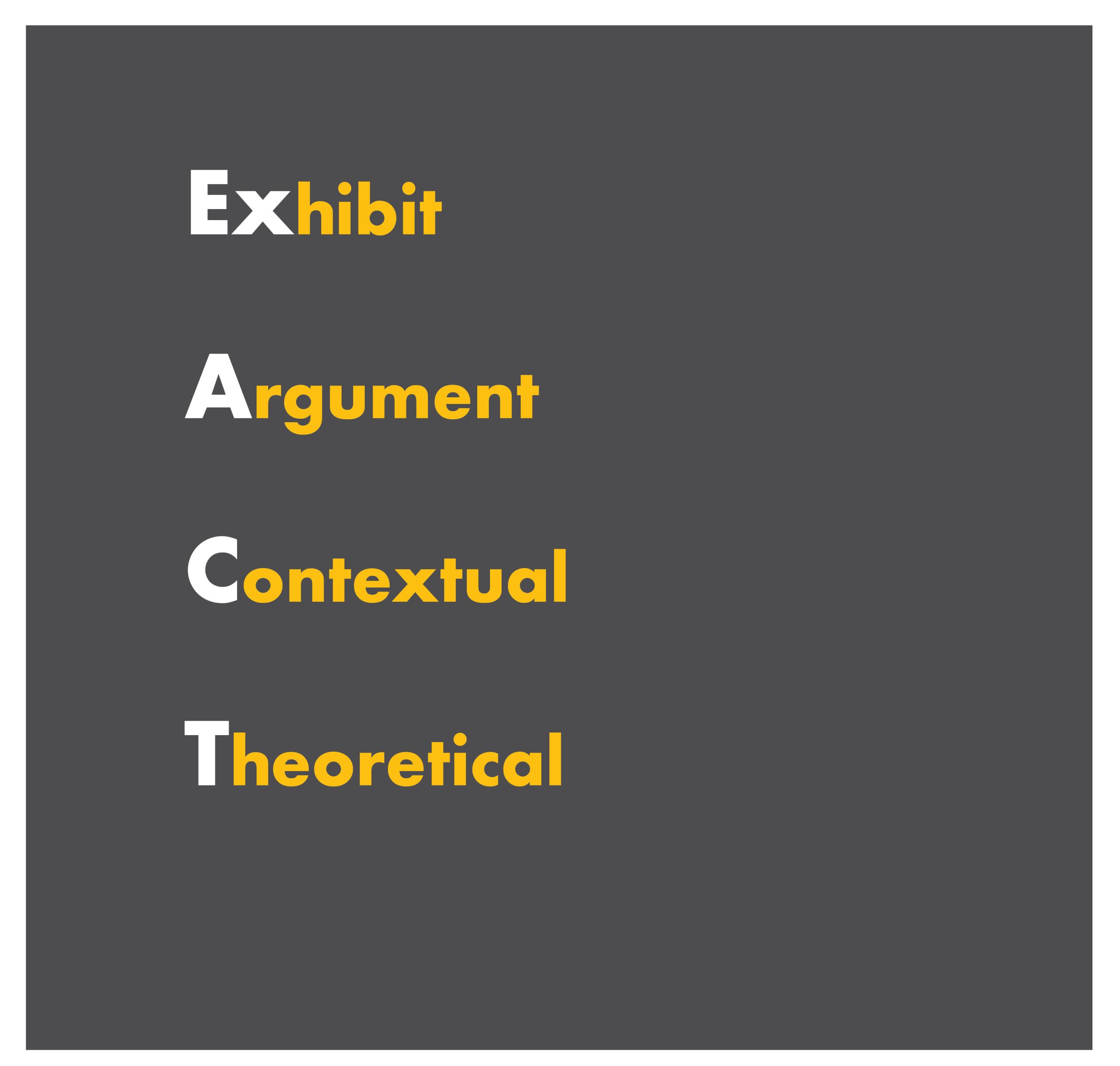
 The distinction between “primary” sources (the actual ‘thing’ being studied) and “secondary” sources (texts that discuss the actual ‘thing’ being studied), as useful as it may be in some fields, does not help us very much as writers. The key thing for us is not what our sources are (inherently), but what we are doing with them in our writing, which is especially important because our uses of even a single source can change over the course of an essay! In other words, we need a vocabulary that allows us to categorize and discuss our sources not in terms of essence, but in terms of function.
The distinction between “primary” sources (the actual ‘thing’ being studied) and “secondary” sources (texts that discuss the actual ‘thing’ being studied), as useful as it may be in some fields, does not help us very much as writers. The key thing for us is not what our sources are (inherently), but what we are doing with them in our writing, which is especially important because our uses of even a single source can change over the course of an essay! In other words, we need a vocabulary that allows us to categorize and discuss our sources not in terms of essence, but in terms of function.
Here, then, is a new vocabulary for discussing sources according to what we are doing with them in our essays. An easy way to remember these terms is through the acronym “ExACT.” As a writer, you are striving for “exact” or intentional and precise use of the sources you engage.
| Source type | What it is | How to use it | What it does |
| Exhibit | The specific ‘thing’ you are analyzing and making an argument about at a particular moment in your essay. A single essay may have various exhibits but often has a central exhibit. | For direct analysis (or “close reading”) in order to make an argument about it. It is akin to a primary source. |
|
| Argument | A source that makes a direct or explicit argument about a ‘thing’ you are making an argument about. | To obtain specific arguments about your exhibit source. It is similar to a secondary source. |
|
| Contextual | A source that provides crucial contextual or background information about the ‘thing’ you are making an argument about (or about an argument or theoretical source you are using in your essay). | To get contextual information that helps you better understand and potentially analyze an exhibit source (or argument source or theoretical source). |
|
| Theoretical | A source that doesn’t explicitly address the specific ‘thing’ you’re making an argument about, but offers a lens, theory, viewpoint, principle, or concept that can be used to think insightfully about the specific ‘thing’ you’re making an argument about. | To obtain a theory that can help you analyze exhibit sources. |
|
